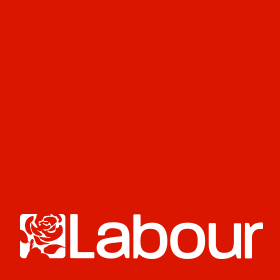The British Labour Party’s platform on access to health, “MEDICINES FOR THE MANY: Public Health before Private Profit,” is organized in five well-written and powerful policy chapters. In 52 pages, the Labour Party takes a strong stand defending patients instead of profits. It also provides a clear explanation of a new set of needed health policies, fully laying out rationale to implementation.
The first chapter covers the current United Kingdom (UK) health system including the pricing of medicines. The second chapter deals with the many problems that plague the existing health care system from the lack of transparency to the pharmaceutical lobby.
The third chapter, titled “Policies,” is bold and is a must-read for anyone who truly believes we can do better. Today, innovation incentives and rewards are effectively the promise of huge monopoly-based profits, which leads to expensive medicines. Chapter 3 addresses the issue in a decisive manner. The chapter is about being practical, using the existing tools available to force prices down and ensuring that publicly-funded drugs are affordable to patients. It is also about being an innovator in the policy space and creating new incentives for pharmaceutical innovation through delinkage of the cost and risk of R&D from the price paid by the patients.
In “Medicines for the Many,” the delinkage model is clearly defined:
By changing the incentives that determine what kind of health innovation happens, public health can come first, while rationing and denial of access could end. Policy steps can be taken immediately to start the process of changing incentives in the system, however the impact will be felt over a longer-term period due to the development time required for drug discovery and innovation.
Delinkage is an innovation model based on the premise that the costs and risks associated with R&D should still be rewarded, but that the incentives for R&D can be provided by means other than financial returns from high product prices during the period of patent protection.
Innovation is instead supported through upfront grants or subsidies and rewarded by a variety of prizes, including innovation inducement prizes, market entry rewards, or open source dividends. These incentives, and the kind of innovation they reward, can be focused on agreed health priorities informed by multiple stakeholders rather than ceding this role entirely to pharmaceutical companies, as is the case in the current system. By replacing market incentives we can ensure that urgent public health needs are prioritised, especially those that are currently ignored, like the ones that affect poorer populations or represent low growth markets such as new antibiotics. Furthermore, a much larger percentage of investment in pharmaceutical products will go directly into R&D. Discoveries rewarded in this model would then be openly licensed to facilitate generic manufacture and competition, driving down prices close to the cost of production.
The fourth chapter is about “building a wider movement” that would include trade unions, civil society, international allies, academics and experts, political support and pharmaceutical industry representatives.
Also quite practically, Chapter 5 addresses the “Concerns and Challenges” about how to fund these reforms, noting the Brexit context as well as the common belief that reforms would slow down new discoveries.
The conclusions of the Labour Party progressive pledge are unequivocal:
Few injustices are as stark as the knowledge that a medicine exists to treat or cure a family member, but that the unaccountable greed of a corporation means they are denied it. With drug prices leaping from tens to hundreds of thousands of pounds per patient, these injustices are only going to become more common globally. Here in the UK this situation is placing the egalitarian, collective ethos of the NHS under unbearable strain.
Something has to change.
While this is a UK Labour Party policy document, it should serve as the basis of reforms in many countries, including the US, which is still struggling with denial of the need for transparency, the need to use existing tools such as compulsory licensing, and the need for a real discussion and decisions about publicly-funded drugs that are too expensive for patients as well as payers. If the US Congress were serious about dealing with the price of drugs, it would also examine how to achieve delinkage of the price of drugs from the cost and risk of innovation. A feasibility study would be a good start for a change.
A copy of the Labour Party pledge, “MEDICINES FOR THE MANY: Public Health before Private Profit,” is available here.

